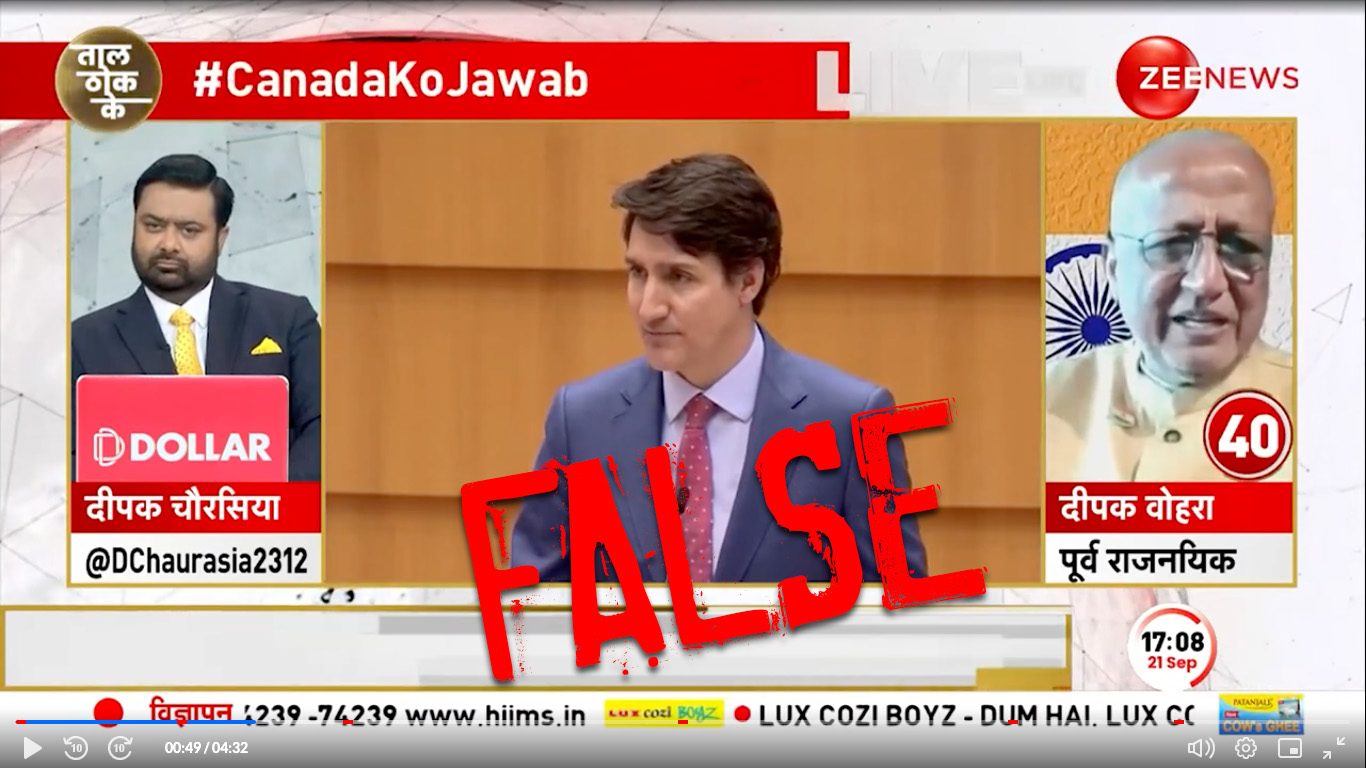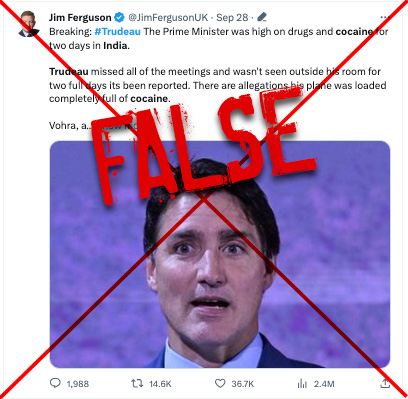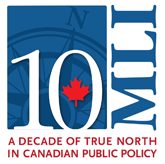 On September 25, Indian television platform ZeeMedia published an interview with former Indian diplomat Deepak Vohra. In the interview, Vohra claimed that the plane that Canadian Prime Minister Justin Trudeau was traveling on to the G20 summit in India was “full of cocaine.” He also claimed that “sniffer dogs found cocaine on his plane” and that while in India, Trudeau “didn’t come out of his room for two days” and that “he didn’t go to the President’s dinner. People say he was in a drug-induced stupor.”
On September 25, Indian television platform ZeeMedia published an interview with former Indian diplomat Deepak Vohra. In the interview, Vohra claimed that the plane that Canadian Prime Minister Justin Trudeau was traveling on to the G20 summit in India was “full of cocaine.” He also claimed that “sniffer dogs found cocaine on his plane” and that while in India, Trudeau “didn’t come out of his room for two days” and that “he didn’t go to the President’s dinner. People say he was in a drug-induced stupor.”
Canadian journalist Evan Dyer wrote on Twitter that he was on the plane and that no Indian agent or dog set foot on board. The Prime Minister’s office issued a statement dismissing the accusation as “absolutely false and a troubling example of how disinformation can make its way into media reporting.”
The Toronto Sun newspaper’s Twitter account posted a link to the story with the description “Trudeau’s plane had cocaine during G20, claims former Indian diplomat” without any accompanying context. According to Twitter’s analytics, the post had been viewed 5.8 million times.
There is no evidence to support the accusation made by the former Indian diplomat.

In June 2023, Canadian Prime Minister Justin Trudeau accused the Indian government of being involved in the killing of Sikh leader Hardeep Singh Nijjar outside a Sikh temple in Surrey, British Columbia. According to Canadian media reports, the allegation was informed by intelligence gathered by Canada’s allies.
The Indian government has denied any involvement in Nijjar’s death.
Nijjar was a vocal critic of the Indian government and its treatment of Sikhs. He was also a supporter of the Khalistan movement, which seeks to create an independent Sikh homeland. Indian authorities have accused Nijjar of being a terrorist.
It is important to note that the accusation made by Vohra is unsubstantiated and has been denied by the Canadian government. It is also important to note that Nijjar’s death is still under investigation.


